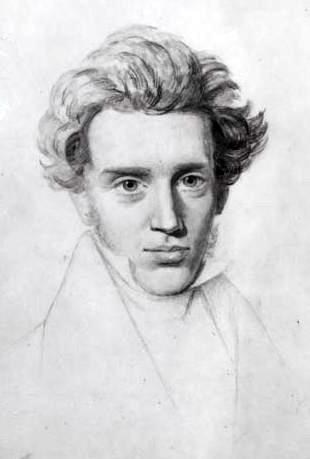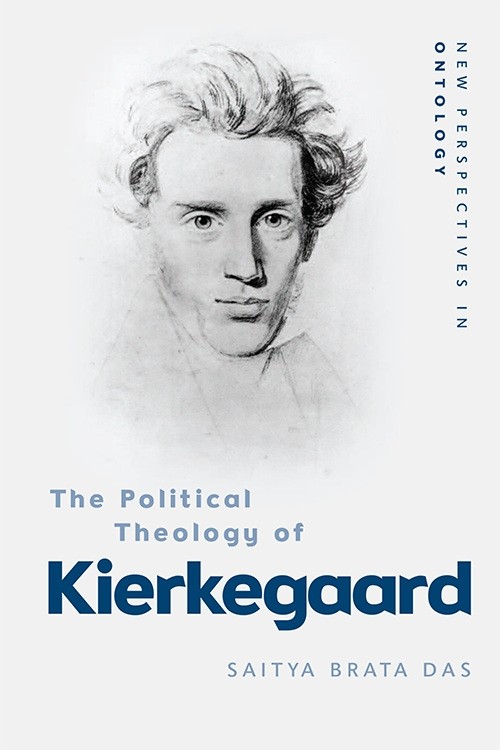
Explore the ideas behind writing the newly published book The Radical Philosophy of Søren Kierkegard by Saitya Brata Das.

It is difficult to read Kierkegaard, not to speak of writing about him. The difficulty of reading Kierkegaard and writing about him lies in an entirely different order than that which we generally presuppose: hardly there occurs in Kierkegaard any technical-philosophical terms like “ontology”, “epistemology”, “speculative” etc. The difficulty lies in the existential horizon of Kierkegaard’s thinking. His thinking challenges us to put ourselves into question, to expose ourselves to the “sickness unto death” only to find beatific joy “70,000 fathoms deep”. Such existential work towards the inward deepening of our self – that is, redemption through suffering – is the task that neither Kierkegaard’s contemporaries nor the human beings in the new millennium have given to themselves. Here lies the untimeliness, but also the contemporaneity (in Kierkegaard’s sense) of Kierkegaard’s thoughts for our time.
Kierkegaard’s Christianity without Christendom
That Kierkegaard is at once untimely and yet contemporaneous to us, in a very paradoxical way, is what I try to show in my recent book The Political Theology of Kierkegaard which is coming out from Edinburgh University Press. Kierkegaard’s call to bypass the eighteenth hundred years of Christendom in order to be contemporaneous with the apostles, so as to listen to the words of the crucified God, calls for an existential task of finding beatific joy in “70,000 fathoms deep”. Such an impossible, paradoxical and strange thinking puts into question what the Christendom of two millenniums has made Christianity into: the religion suffering, this crucifixion unto death, is transformed into the religion of mirth and of triumph, and into the victorious world-historical-political institution called “Christendom”. Kierkegaard’s philosophical task to re-introduce Christianity into Christendom, by virtue of a qualitative disjunction, appears to be radical even at the beginning of the new millennium which is marked by an extreme advancement of sophisticated technologies, and by an ever accelerating mass-consumption. In a gesture opposed to, and yet, in parallel to Marx’s and Nietzsche’s atheistic critiques of the historical Reason of modernity, Kierkegaard vehemently denounces the massification of the modern society that forgets the singular individual and the words of crucified God, which nevertheless never forgets to speak in the very name of that crucified one. Finding ourselves at the beginning of the new millennium, Kierkegaard’s Christian critique of the anonymous, tyrannical order of totality appears to be even more radical than Marx’s and Nietzsche’s atheistic critiques of historical Reason, especially now when our belief in the secular-liberal democracies, in the era of mass-consumption, is undergoing decisive dismantling.
The Negative Political Theology of Kierkegaard
This calls for us to think again the place of religion for the new millennium, which includes the necessity to take into account how political powers have always appealed to theological foundations for legitimation. This shows, once again, the radicality of Kierkegaard’s “ Christianity without Christendom”, which Kierkegaard conceives eschatologically, in the very spirit of the apostles like Saint Paul, that asks us not to the conformed to the worldly powers, and not to deify worldly sovereignties into the figures of the absolute. Borrowing the term and the idea of Jacob Taubes, I call the radical philosophical-theological thinking of Kierkegaard as “negative political theology” that effectively unworks any legitimation of worldly powers on theological foundations.
By Satya Das

Saitya Brata Das teaches literature and philosophy at Jawaharlal Nehru University, New Delhi. His works draw upon areas of medieval theology, political theology, and contemporary continental thoughts. His recent study The Political Theology of Kierkegaard is coming out from Edinburgh University Press (2020).

The Political Theology of Kierkegaard reconstructs a negative political eschatology through thinking of an exception without sovereignty.
Read more about The Political Theology of Kierkegaard.




